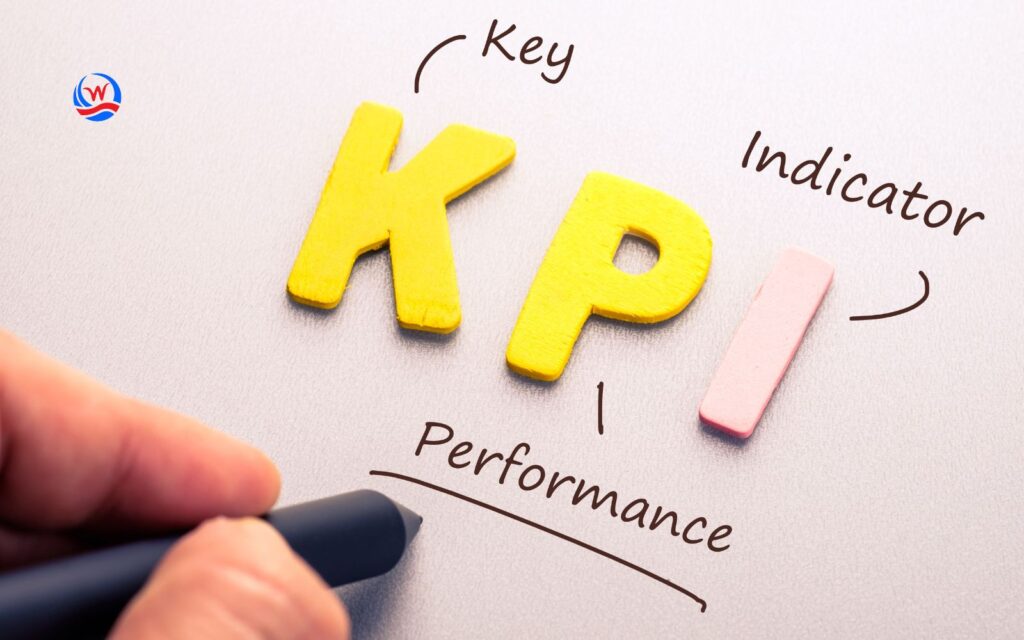Keyword research shapes every successful local SEO campaign. For Denver businesses, the right keywords drive targeted traffic, appear in the all-important local pack, and – most importantly – boost conversions.
Studies have shown that businesses leveraging local SEO can see up to 2x more website traffic and significant improvements in customer calls, depending on strategy. With the Mile High City’s unique geography and booming tech and startup scene, general keyword research isn’t enough. You need a Denver-specific approach.
In this comprehensive guide, you’ll learn:
- Exactly how keyword research drives Denver business growth
- Key tools and Denver-local strategies for finding high-converting keywords
- How to structure, implement, and measure your keyword strategy – for any Denver niche
Let’s jump in!
Understanding Keyword Research Denver Market
Why Businesses Need Specialized Keyword Research
Generic keyword research simply doesn’t cut it anymore. Denver’s unique market demands a specialized approach that considers local search behaviors, geographical nuances, and industry-specific trends. Without keyword research, you’re invisible to your most valuable potential customers.
Local businesses in Denver that implement targeted keyword strategies see conversion rates 30% higher than those using generic approaches.
This is because localized keywords match the specific search intent of consumers, connecting you with highly qualified leads who are ready to make purchasing decisions.
The Unique Characteristics of Denver’s Search Landscape
Denver’s search landscape has several distinctive features that make it different from other markets:
- Denver has one of the highest rates of “near me” searches in the country
- Seasonal search patterns heavily influenced by tourism and outdoor recreation
- Neighborhood-specific searches (RiNo, LoDo, Highlands) are extremely common
- High mobile search volume (mobile searches make up around 60-70% of all local queries)
- Bilingual search activity in Denver is seeing significant growth, with many neighborhoods showing increased Spanish-language queries.
Understanding these patterns is essential for creating a keyword strategy that actually works in our local market.

How Geography Influences Keyword Strategy
The Mile High City’s unique geography creates distinct search patterns. The city’s position as both an urban center and gateway to outdoor recreation means businesses need to consider dual-intent keywords that reflect this lifestyle blend.
For example, a Denver coffee shop might target keywords like “coffee shop near hiking trails Denver” or “pre-mountain coffee stop Denver.” Similarly, the distinct neighborhood cultures across the city mean that different keywords perform better in different areas – what works in tech-centric Downtown might not resonate in artsy RiNo or family-friendly Wash Park.
Essential Types of Keywords
Geo-Specific Keywords
Geo-specific keywords combine your service or product with location modifiers to tap into highly targeted local searches. Examples include:
- “Denver small business SEO”
- “LoDo coffee shop”
- “Plumber in Highlands Denver”
- “Baker neighborhood nail salon”
These hyper-local keywords might have lower overall search volume, but they often show significantly higher conversion rates compared to more general search terms because they match precise local intent.
Industry-Specific Keywords
Industry-specific keywords combine your service offerings with industry-relevant terminology that Denver searchers are using. For example:
- “Denver sustainable architecture firm”
- “Farm-to-table restaurant Downtown Denver”
- “Tech startup legal services Denver”
- “Denver craft brewery tours”
These keywords help you connect with searchers who have specific industry needs or interests.
Long-Tail Keywords
Long-tail keywords are longer, more specific phrases that typically, in many cases, have lower search volume but higher conversion potential. For Denver businesses, these might include:
- “Best keyword research services in Denver for startups”
- “Affordable keyword research for Denver small business”
- “Denver neighborhood-specific keyword strategy”
- “Italian restaurant with outdoor seating in Cherry Creek Denver”
These detailed phrases capture highly specific search intent and often indicate a prospect who’s further along in their buying journey.
High-Intent Keywords
High-intent keywords signal that a searcher is ready to make a purchase decision. These include:
- “Emergency plumber Denver open now”
- “Best Denver SEO consultant free consultation”
- “Denver keyword research services pricing”
- “Book Denver tax accountant appointment”
High-intent keywords tend to attract users closer to a purchasing decision, making them key for local businesses in competitive markets like Denver.

Essential Tools & Data Sources for Keyword Research
Selecting the right keyword research tools is crucial for Denver businesses. Here’s a comparison of essential tools and their local advantages:
| Tool | Best Use | Local Advantage | Cost |
| Google Keyword Planner | Baseline volumes/CPC | Zip-code filter | Free |
| Google Business Profile Insights | Actual GBP query list | Hyper-local “near me” data | Free |
| Ahrefs | KD & SERP features | Include/Exclude Denver | $$$ |
| Semrush | Competitive gap | Local “Positions” tracking | $$$ |
| AnswerThePublic | Question mining | Voice search phrases | $ |
| Keywords Everywhere | On-page overlay | Realtime SERP volumes | $ |
While premium tools offer more comprehensive data, startups and small businesses can achieve significant results using free tools with localized filters. The key is to consistently analyze the data through a Denver-specific lens.
Note: Many of these tools have free versions or trials, but their full capabilities (especially in local filters) come with a premium cost.
The 8-Step Framework for Effective Keyword Research in Denver
Step 1: Baseline Audit of Current Traffic & Queries
Before identifying new keywords, understand what’s already working:
- Pull Google Search Console data and segment by Denver zip codes
- Analyze Google Analytics 4 for neighborhood-level performance
- Identify which current keywords are driving actual conversions
- Note any seasonal patterns specific to Denver’s local calendar
- Benchmark your performance against Denver competitors
This audit provides the foundation for your entire keyword strategy and prevents you from overlooking valuable existing traffic sources.
Step 2: Define Local Buyer Personas & Pain Points
Denver’s diverse neighborhoods and communities require targeted persona development:
- Create distinct personas for different Denver neighborhoods (Downtown professional vs. Highlands family)
- Distinguish between tourist and resident search behaviors
- Consider Denver’s unique lifestyle segments (outdoor enthusiasts, tech professionals, creative class)
- Document each persona’s specific pain points and search intentions
- Map typical customer journeys for Denver consumers in your industry
Understanding exactly who you’re targeting will make your keyword research infinitely more effective.
Step 3: Brainstorm Seed Keywords
Start with a comprehensive list of potential keyword ideas:
- Core services + “Denver” (e.g., “accounting services Denver”)
- Neighborhood variations (e.g., “accounting services LoDo”)
- Spanish-language equivalents (important in many Denver neighborhoods)
- Seasonal variations relevant to Denver’s calendar
- Problem-based phrases (e.g., “fix leaky roof Denver winter”)
- Question formats (e.g., “where to find tax help in Denver”)
This brainstorming should produce at least 50-100 potential seed keywords to explore further.
Step 4: Expand with Data Tools
Use specialized tools to expand your keyword list:
- Extract actual search queries from Google Business Profile Insights
- Use Google Keyword Planner to find related terms with Denver filter applied
- Explore subreddits and community forums for natural language phrases
- Mine “People Also Ask” boxes for common questions
- Check Ahrefs or Semrush for competitor keywords in the market
- Analyze Google Autocomplete suggestions for Denver-specific terms
This data-driven expansion can multiply your keyword list by 5-10x with highly relevant options.
Step 5: Evaluate Volume, Difficulty & CPC
Not all keywords are created equal. Prioritize your list based on:
- Focus on search volume ≥ 20 monthly searches in the local area
- Target keyword difficulty scores ≤ 25 for faster ranking potential
- Prioritize terms with high purchase intent signals
- Balance competitiveness with conversion potential
- Consider seasonal fluctuations in Denver search patterns
This evaluation helps you identify the “sweet spot” keywords that offer the best opportunity-to-effort ratio.
Step 6: Cluster Keywords into Topic Hubs
Organize your keywords into logical groupings:
- Create parent topics with related subtopics (e.g., “Denver Plumber” → emergency, drain cleaning, etc.)
- Develop neighborhood-specific clusters for multi-location targeting
- Group by customer journey stage (awareness, consideration, decision)
- Identify content hub opportunities around high-value topics
- Map keywords to specific pages or content pieces
This clustering approach aligns perfectly with how search engines understand topical relevance today.
Step 7: SERP Feature & Competitor Gap Analysis
Analyze the current search results for your target keywords:
- Identify which SERP features appear for your target keywords (map packs, featured snippets, etc.)
- Find unanswered questions in your niche
- Analyze which competitors rank for which terms
- Spot gaps where no strong Denver-focused content exists
- Note which content types perform best for different keywords
This analysis reveals strategic opportunities that others have missed in the market.
Step 8: Finalize, Tag & Implement
Transform your research into an actionable implementation plan:
- Create a final prioritized keyword list with clear metrics
- Tag each keyword by funnel stage and content type
- Assign specific keywords to specific pages and content pieces
- Set measurable KPIs for each keyword group
- Develop a content calendar based on keyword priorities
- Establish tracking systems to measure performance
With this structured approach, you’ll turn your Denver keyword research into tangible business results.

Advanced Keyword Strategies for Denver’s Unique Market
Neighborhood-Specific Keyword
Denver’s strong neighborhood identities create opportunities for ultra-targeted keyword strategies:
- Create dedicated landing pages for each major neighborhood you serve
- Develop content that addresses neighborhood-specific pain points
- Use neighborhood name + service combinations in title tags and headers
- Target Denver neighborhood-specific events and seasonal activities
- Monitor performance data at the neighborhood level
Businesses that implement neighborhood-specific targeting see up to 40% higher conversion rates from local searches.
Voice Search Keywords for Mobile-First Audience
With about 60-70% of Denver local searches happening on mobile devices, voice search optimization is essential:
- Target natural language phrases (how people actually speak)
- Focus on question-based keywords (who, what, where, when, why, how)
- Include conversational terms like “near me” or “open now”
- Target “I need…” and “where can I find…” phrases
- Consider context-based searches (“coffee shop near Denver Art Museum”)
Voice searches tend to be more conversational and often indicate high purchase intent.
Local Intent Keywords
For brick-and-mortar businesses, certain keywords are particularly effective at driving actual visits:
- “Denver [business] open now”
- “Best [business] near me Denver”
- “[Business] near [landmark] in Denver”
- “Directions to [business] from [neighborhood]”
- “Walk-in [service] Denver”
These high-intent keywords connect you with customers who are actively looking to visit a business immediately.
Entity-Based Keywords
Modern search engines understand entities (people, places, organizations) and their relationships:
- Target Denver entities related to your business (institutions, events, landmarks)
- Build topical authority around Denver-specific concepts
- Associate your brand with established Denver entities
- Develop content that connects related Denver entities
- Use schema markup to clearly identify Denver-specific entities
Entity-based keyword strategies align with how modern search algorithms understand and rank content.
Implementing Keywords Across Your Business Presence
On-Page Optimization
Effective keyword implementation requires strategic on-page optimization:
- Place Denver-specific keywords in strategic HTML elements (title tags, headers, meta descriptions)
- Create neighborhood-specific content with relevant local terms
- Naturally incorporate keywords into compelling, valuable content
- Use semantic variations and related terms throughout your content
- Implement local schema markup with details
Remember that over-optimization can harm your rankings – focus on creating genuinely helpful content for searchers.
Google My Business Keyword Optimization
Your Google Business Profile is crucial for local keyword visibility:
- Select the most accurate primary and secondary categories
- Include targeted keywords in your business description
- Add neighborhood-specific service areas
- Create Google Posts with locally relevant keywords
- Respond to reviews using natural keyword variations
A well-optimized GBP can dramatically improve your visibility in local pack results.
Content Strategy
Your content strategy should support your keyword goals:
- Create neighborhood guides optimized for local terms
- Develop Denver event-related content with seasonal keywords
- Publish locally relevant case studies featuring your businesses
- Create FAQ content answering common Denver-specific questions
- Produce “best of Denver” lists relevant to your industry
This Denver-centric content approach builds topical authority while naturally incorporating your target keywords.
Tracking Success – KPIs & Reporting Dashboards
Effective keyword performance tracking requires systematic measurement:
- Track local pack positions for each Denver neighborhood you target
- Monitor organic click growth by keyword category
- Measure calls, form submissions, and chat initiations by traffic source
- Calculate conversion rate differences between keyword types
- Create a grid-based rank tracking system for Denver zip codes
- Develop a custom GA4 Looker Studio dashboard to visualize performance
These comprehensive tracking methods ensure you can demonstrate clear ROI from your keyword strategy.

Common Keyword Research Mistakes You Should Avoid
Targeting Generic Keywords
One of the biggest mistakes Denver businesses make is targeting overly generic terms like “coffee shop” or “plumber” without local modifiers.
These terms are virtually impossible to rank for and don’t capture local intent. Instead, focus on geo-modified terms that match how Denver consumers actually search.
Ignoring Search Intent
Many businesses focus exclusively on search volume while ignoring the actual intent behind searches. A keyword with lower volume but higher purchase intent (like “emergency plumber Denver open now”) is far more valuable than a high-volume informational query that won’t convert.
Forgetting Mobile & Voice Search Trends
With most local searches now happening on mobile devices, ignoring mobile and voice search patterns is a critical mistake. Denver’s high rate of “near me” searches – which grew by 136% in the past year – makes this particularly important for local businesses.
Conclusion
Effective keyword research is the foundation of successful digital marketing for Denver businesses. By understanding the unique characteristics of Mile High search landscape, utilizing the right tools, and implementing a systematic research framework, you can identify the exact keywords that will connect you with your ideal local customers.
The strategies outlined in this guide give you a competitive advantage in Denver’s increasingly digital marketplace. By focusing on geo-specific keywords, understanding neighborhood nuances, and optimizing for local intent, you’ll attract not just more traffic, but more of the right traffic – qualified leads who are ready to become customers.
Need expert help with keyword research for your Denver business? Contact The Ocean Wide at (720) 334-0899 or email [email protected] for a free local SEO consultation.
Our Denver-based team specializes in helping local businesses discover and implement high-converting keywords that drive real business growth.
Frequently Asked Questions (FAQs)
What are the most effective keyword research tools specifically for Denver businesses?
Denver businesses can benefit from using tools like Google Keyword Planner (with location targeting set to Denver), SEMrush’s Geo-targeting features, Ahrefs with local filters, and specialty tools like BrightLocal that focus on local SEO metrics.
How often should Denver businesses update their keyword research?
Denver businesses should update their keyword research quarterly at minimum, with additional reviews during seasonal peaks (tourism seasons, major events) or after significant local developments that might affect search behavior.
What neighborhood-specific keywords work best for Denver businesses with physical locations?
The most effective neighborhood-specific keywords combine the neighborhood name with your service/product and intent modifiers, such as “LoDo coffee shop near me” or “Cherry Creek tax accountant appointment.”
How does Denver’s unique geography and lifestyle affect keyword strategy?
Denver’s position as both an urban center and gateway to outdoor recreation means businesses should consider dual-intent keywords that reflect this lifestyle blend, such as combining urban services with outdoor interests in long-tail keywords.
What are the biggest mistakes Denver businesses make when conducting keyword research?
Common mistakes include targeting only broad Denver terms without neighborhood specificity, ignoring seasonal trends unique to Colorado, failing to consider the city’s rapid growth and changing demographics, and not analyzing the unique competitive landscape of their specific Denver niche.



